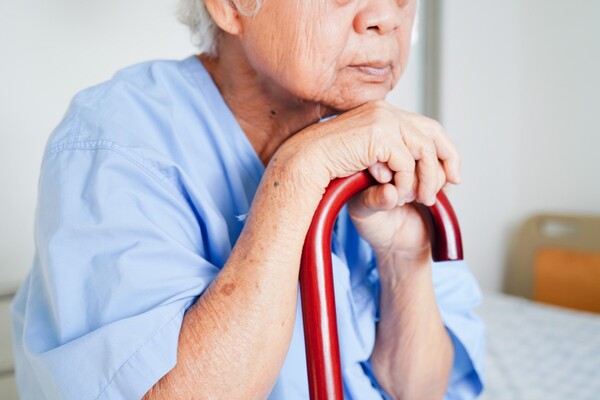A medical society has recommended expanding national mandatory vaccinations for major infectious diseases that threaten the health of Korean older adults.
On Friday, the Korean Geriatrics Society said it has officially delivered “Three Health Policy Proposals” to the State Affairs Planning Advisory Committee, a transition team for the Lee Jae Myung administration, to protect the health of older adults and alleviate social burdens.

The proposals, which came as the Lee administration collects public opinion to establish national tasks, call for a fundamental shift in health policy for older adults and contain three strategic tasks centered on “diagnosis, prevention, and care.”
First, the geriatric society emphasized that the risk of fatal complications and death from influenza and RSV (respiratory syncytial virus) infections is high among people aged 65 and over, who have relatively weak immunity. Therefore, more effective preventive measures should be taken by including immune-boosting influenza vaccines and RSV vaccines in the national mandatory vaccination list, it emphasized.
Currently, the regular influenza vaccine, which is supported as a nationally mandated immunization, is significantly less effective due to aging immunity. According to a survey in the 2023-2024 season, the vaccine's preventive effectiveness in older adults is only 17.4 percent. Even though the vaccination rate has exceeded 80 percent, 70 percent of influenza-related hospitalizations and 80 percent of deaths still occur in older adults, which explains why an immune-boosting influenza vaccine is needed, according to the geriatric society.
The U.S., U.K., and Germany already provide free immune-boosting flu vaccines to older adults, and research shows that improving vaccine effectiveness by 5 percent can have a greater impact on preventing infection than increasing vaccination rates.
According to the U.S. Centers for Disease Control and Prevention (CDC), RSV causes 60,000 to 160,000 hospitalizations and 6,000 to 10,000 deaths in adults 65 and older each year. RSV infections are often confused with bacterial pneumonia and are thought to contribute to increased length of hospitalization and mortality in older adults with pneumonia.
The RSV vaccine has been approved by the U.S. Food and Drug Administration since 2023 and is reported to be more than 90 percent effective in preventing severe disease. For this reason, the geriatric society recommends that the RSV vaccine be included in the national mandatory immunization program for people 65 and older.
Besides, the geriatric society emphasized the need to establish adequate insurance reimbursement for the Comprehensive Geriatric Assessment (CGA), the foundation of geriatric care and a key assessment tool in geriatrics. The CGA is a basic assessment that multidimensionally evaluates the physical, cognitive, psychological, and social status of older adults to establish a customized treatment and care plan, and has become a standard of care in geriatric medicine.
However, there is no separate reimbursed fee for CGA in Korea, which limits the implementation of the assessment in medical fields and acts as a major obstacle to the clinical development of geriatrics and its spread. To improve the quality of geriatric care and establish an academic foundation, establishing a CGA fee is considered an essential system improvement task, according to geriatrics experts.
In addition, the demand for home visits and home healthcare for older adults is expected to surge under the “Integrated Care Support Act,” which will be implemented from next year, the geriatrics society said. It is urgent to prepare treatment guidelines for geriatric medicine in preparation for this, it stressed.
In particular, a specialized approach is needed to clarify standards of care, treatment priorities, and linkage systems at home for geriatric patients with complex health problems, marked by multiple diseases and multiple medications.
"These standards can serve as the basis for establishing a home healthcare fee system, building a linkage model on a regional basis, and ensuring the quality of home visits," the Korean Geriatrics Society said. "The study should be reflected in the future institutionalization of health authorities and lay the foundation for building a sustainable geriatric healthcare system."
“The reality that the health of older adults is marginalized in policy priorities is linked to the sustainability of the country,” said Hwang Sung-hee, president of the Korean Geriatrics Society (professor of neurology at Hallym University Kangnam Sacred Heart Hospital). “In the era of ultra-aging, where more than 20 percent of the population is over 65 years old, we need a health policy that can comprehensively cover the diagnosis, prevention, and care of geriatric diseases.”
Cho Bi-ryong, chairman of the Korean Geriatrics Society (professor of family medicine at Seoul National University Hospital), said, “Preventing infections among older adults goes beyond individual health and is directly related to the daily maintenance of grandparents, caregiving families, and communities. We hope that this proposal will be reflected in the process of establishing the national tasks of the Lee Jae Myung government and lead to a shift in health policy that all citizens feel.”

